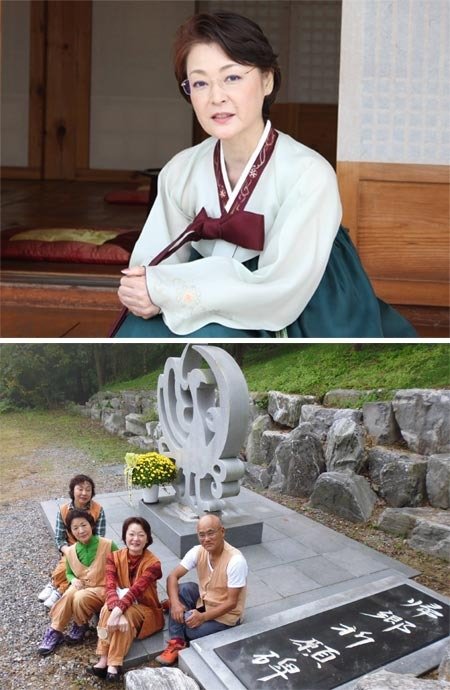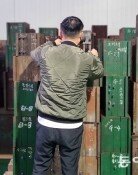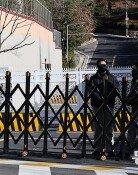Japanese actress says, 'nothing bonds closer ties than traveling'
Japanese actress says, 'nothing bonds closer ties than traveling'
Posted September. 07, 2017 07:33,
Updated September. 07, 2017 09:27

A Japanese lady on the microphone delivered a passionate speech last Thursday at the opening ceremony of the Daegu Tourism Photo Exhibition held at the Korean Council in Tokyo, Japan. She was Japanese actress Kuroda Fukumi in a Korean traditional style.
The event host introduced her as a foreigner who loves Korea more than Koreans. She has spearheaded in promoting Korea to Japan for the past 34 years. As a Japanese who has visited Korea more than 300 times, she is an honorary ambassador of Korea tourism, and also serves as the honorary ambassador of several areas of Gyeonggi, Daegu, Pohang and Hapcheon. In addition, Kuroda published various tour guidebooks. “Nothing can compare traveling when it comes to Koreans and Japanese trying to share and understand each other,” emphasized Kuroda.
She had been at the center of social dispute even though she used to say that Korea is my destiny. It was when she led a campaign to build a memorial stone for the Korean suicide pilot in 2008. Kuroda wrote about the past 10 years and published a book titled “Before and After Dreaming.”
“All I thought of at that time was to pay my respect from the bottom of my heart," Kuroda recalled in an interview with the Dong-A Ilbo. "I carried out the project very carefully since it could trigger social conflict, but I never knew it would unfold into a disaster."
In her dream in 1991, Kuroda met a Korean young man who said, "It is a pity that I, a Korean, died as a Japanese.” After tracing the stranger in her dream, Kuroda was convinced that the man was Mr. Tak who was sent to war and died on the Okinawa seas in May 1945. Kuroda also found out that Mr. Tak melted into tears and sang out “Arirang” loudly at his favorite restaurant one day before leaving his hometown.
With firm will to construct a memorial stone at his hometown, Sacheon in South Gyeongsang Province, Kuroda secured land with the help of the city mayor. At first, Koreans welcomed her effort. Nonetheless, the event was canceled at the last minute due to opposition by a civic organization arguing that no stones shall be built for pro-Japanese. The memorial stone was also pulled down.
“I am sure that Mr. Tak must have been upset that he had to live as a Japanese with a Japanese name," Kuroda said. "All I wanted to do was to provide a destination for his soul to return to his home.”
peacechaos@donga.com
Headline News
- Pres. Yoon refuses impeachment documents for a week
- Debate over Lee’s participation causes friction in government consultative body
- Food and dining prices could increase en masse next year
- Foreign couple borrowed over $2 million to buy a Seoul house
- One-third of Japanese companies keep workers employed until 70







